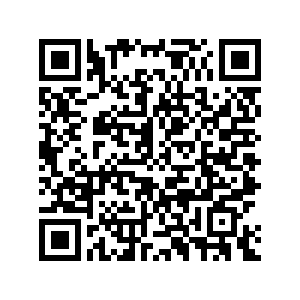by Xinhua writer Habtamu Worku
ADDIS ABABA, Dec. 16 (Xinhua) -- As the African Union Commission (AUC) embarks on the election process of its senior leadership, the three candidates vying for the AUC chairperson position have announced their priorities for advancing the union's aspirations for an integrated, united and prosperous Africa.
In line with the upcoming election of the next AUC chairperson for the 2025-2028 period, which is slated to take place in February 2025 during the AU Summit, the three candidates, Djibouti's Foreign Affairs and International Cooperation Minister Mahamoud Ali Youssouf, Kenya's former Prime Minister Raila Odinga, and Madagascar's former Foreign Affairs Minister Richard Randriamandrato, took part in a live debate late Friday, outlining their priorities at the AU headquarters in Addis Ababa, the capital of Ethiopia.
During the televised debate broadcast live to African citizens, the three candidates elaborated on their vision and strategies for implementing the Agenda 2063, the AU's 50-year continental development blueprint, and driving Africa's transformative vision for a prosperous, united, and peaceful Africa.
In his address, Youssouf underscored that strengthening the AU's Peace and Security Council into a more proactive organ, operationalizing the African Standby Force, mobilizing resources to ensure stable financing of the union, boosting intra-African trade, and promoting the free movement of goods and people across Africa are among his major priorities if elected.
"The place of Africa on the international stage will be one of my priorities. The Africa that we want is the Africa of peace, integration and prosperity. If I'm given the chance of being the chairperson of the commission, I will do my best to make sure that our continent shines on the international stage," Youssouf said.
The three candidates underscored their resolve to advance the transformative role of the AU in addressing Africa's existing and emerging development and security challenges.
According to the AU, the February 2025 election process will be based on the principle of inter-regional rotation of the commission's senior leadership positions. The Eastern Africa region will submit candidates for the role of chairperson, while the Northern Africa region will submit candidates for the role of deputy chairperson. The remaining three regions (Central, Southern and Western Africa regions) will submit at least two candidates for the six portfolios of commissioners.
Odinga, on his part, underscored his conviction to strive for the realization of the founding fathers' vision for a united Africa in the creation of the Organization of African Unity, the predecessor of the AU, in 1963.
Describing himself as an ardent "pan-Africanist and optimist," Odinga promised to advance the continent's progress through the promotion of quality education, health, value-addition, intra-African trade, and infrastructure development, among others.
"Africa is moving forward, but there is work to do and I have what it takes to get us where we want to go. What remains now is action, and what I want to promise to the African people is that I'm going to lead from the front to ensure that we achieve the vision of the founding fathers of our continent," he said.
Outlining his priorities, Randriamandrato underscored the need to harness Africa's robust potential to drive holistic economic development. He affirmed his commitment to augmenting the 55-member continental organization's role in facilitating continental socioeconomic development if elected.
"We have our own house, the African Union, and there is an Africa, which is dynamic and moving forward. I am here before you today because I think it is indispensable and it is a must to have the quality, competence and conviction (to lead the AU). I think that I have those qualities," he said.
In February 2024, a Panel of Eminent Africans, composed of five personalities -- one per region -- was appointed to oversee the pre-selection of candidates for the eight positions.
According to the AU, the televised debate allows African citizens and other stakeholders to put forward questions to the candidates on how to propel the continent's growth and ensure that Africa achieves its goals for integrated and sustainable development and becomes a major player in the global arena.
As the AUC embarks on the election process of its senior leadership, experts have underscored the crucial need to advance the transformative role of the AU in addressing Africa's existing and emerging development and security challenges.
In a recent interview with Xinhua, Costantinos Bt. Costantinos, who has served as an economic adviser to the AU and the UN Economic Commission for Africa, suggested that addressing the root causes of conflict and insecurity perils, augmenting Africa's human capital, facilitating members' efforts in addressing humanitarian catastrophes unleashed by natural and man-made calamities, as well as advancing the realization of flagship continental development aspirations are potential focus areas for the incoming AUC leadership.
"The incoming leadership will be tested to alleviate the root causes of incessant conflicts and military coups destabilizing the continent, specifically in the Sahel, Central Africa, and the Horn of Africa," said the expert.
He said while some African nations are registering "great economic growth," further efforts are needed to meaningfully uplift the continent's Human Development Index. He said the incoming AUC leadership is also expected to boost the engagement of highly qualified and independent academia and the private sector that can drive the vision of a peaceful and developing Africa, acknowledging that the AU can lead in realizing this continental aspiration.
The current AUC Chairperson Moussa Faki Mahamat, who African leaders elected to lead the pan-African bloc in January 2017 during the 28th AU Summit, is fast approaching an end to his second-term tenure at the helm of the AU Commission. ■
